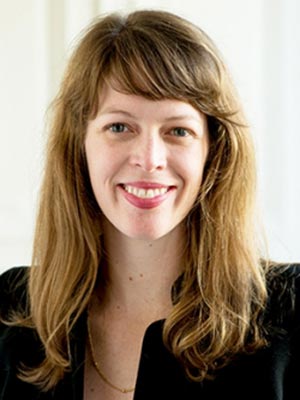It’s early afternoon in the Kenyan highlands, and we were spending the day near Kericho with tea smallholder farmers, as part of a pilot program for the expansion of HERproject in the country. We were struck by the strengths in the community—leadership skills, social cohesion, business savvy—and the challenges that farmers face in their daily lives. Although they can astutely track fluctuations in international tea prices and modify their growing and harvesting strategies, farmers and their families and communities often still suffer from easily preventable diseases and health issues linked to poor hygiene, malnutrition, and lack of family planning.
To help address this gap, we are adapting our workplace-based women’s empowerment program, HERproject, to the context of smallholder farms in partnership with the Co-operative Group and Finlays and with support from DFID’s Trade in Global Value Chains Initiative. This new step will allow us to scale our reach and promote a better standard of living for smallholder farmers and their communities—while increasing productivity.
Today, we are launching the paper “Empowering Women in Kenya’s Tea Sector: Adapting HERproject to the Smallholder Farm Context,” which shares findings from our study on how to adapt HERproject for this new group of supply chain workers.
Smallholder farmers are crucial actors in global agriculture, producing commodities such as cocoa, coffee, tea, groundnut, and cotton. In addition to representing 500 million farm holdings—which support the livelihoods of nearly 2 billion people—they feed up to 80 percent of the population in Asia and sub-Saharan Africa.
Despite their critical role in agricultural production and global supply chains, many smallholders face significant barriers to full inclusion in the economy and adequate standards of living. For instance, our study in Kenya indicated that smallholder farmers often experience inadequate nutrition, which can be caused by limited food budgets and a lack of understanding about how to compose nutritious, balanced meals. Additionally, many smallholders have knowledge gaps around maternal health and family planning.
Companies in the food and beverage sectors in particular have recognized the opportunity for strengthening smallholder farmer agricultural practices and the social and environmental conditions of production. However, there is an opportunity to go further: Adopting a comprehensive approach to supporting the health and well-being of smallholders and their communities is essential to sustainable and inclusive economic growth—which also means business growth.
Our HERhealth pilot with smallholder farmers in Kenya seeks to address some of these health-related challenges, particularly the gaps in health knowledge, health-seeking behavior, and access to services. Our new paper presents our approach for adapting HERproject to the unique needs of smallholder farmers, including the need to develop buy-in from local community leaders and to structure interventions for accessibility and convenience, especially for women, who juggle demands at home and on the farm. The paper also establishes a set of implementation principles for companies interested in introducing HERproject or similar training programs to smallholder farmers in their supply chains.
More than 5,000 smallholder farmers are participating in the adapted HERhealth pilot program in Kericho, and HERproject aims to reach an additional 10,000 smallholder farmers in the coming years. By expanding the HERproject model, we hope to help companies engage more actors in their supply chains, which is critical to building an inclusive economy, in which all individuals are able to participate in and benefit from economic activity.

